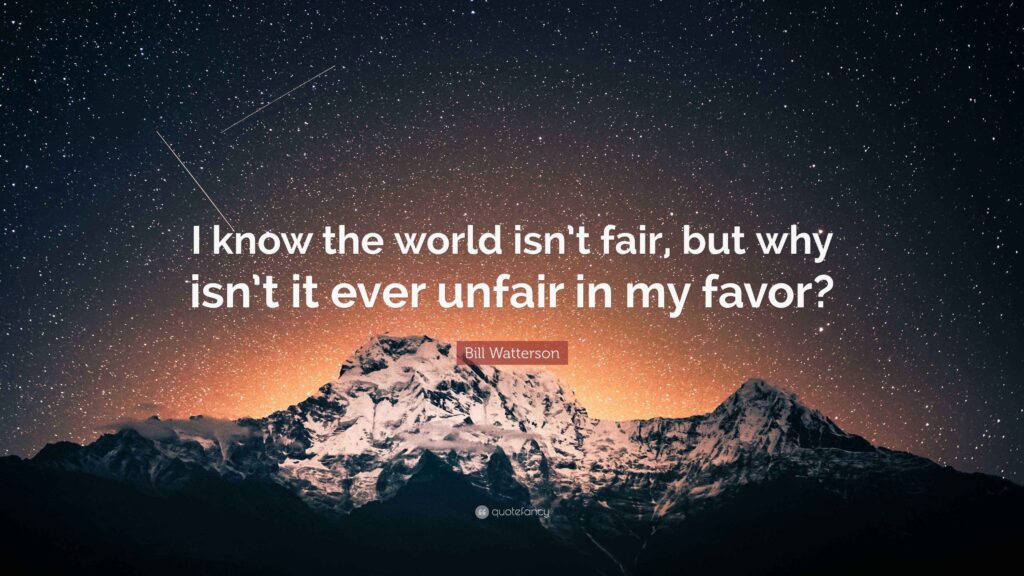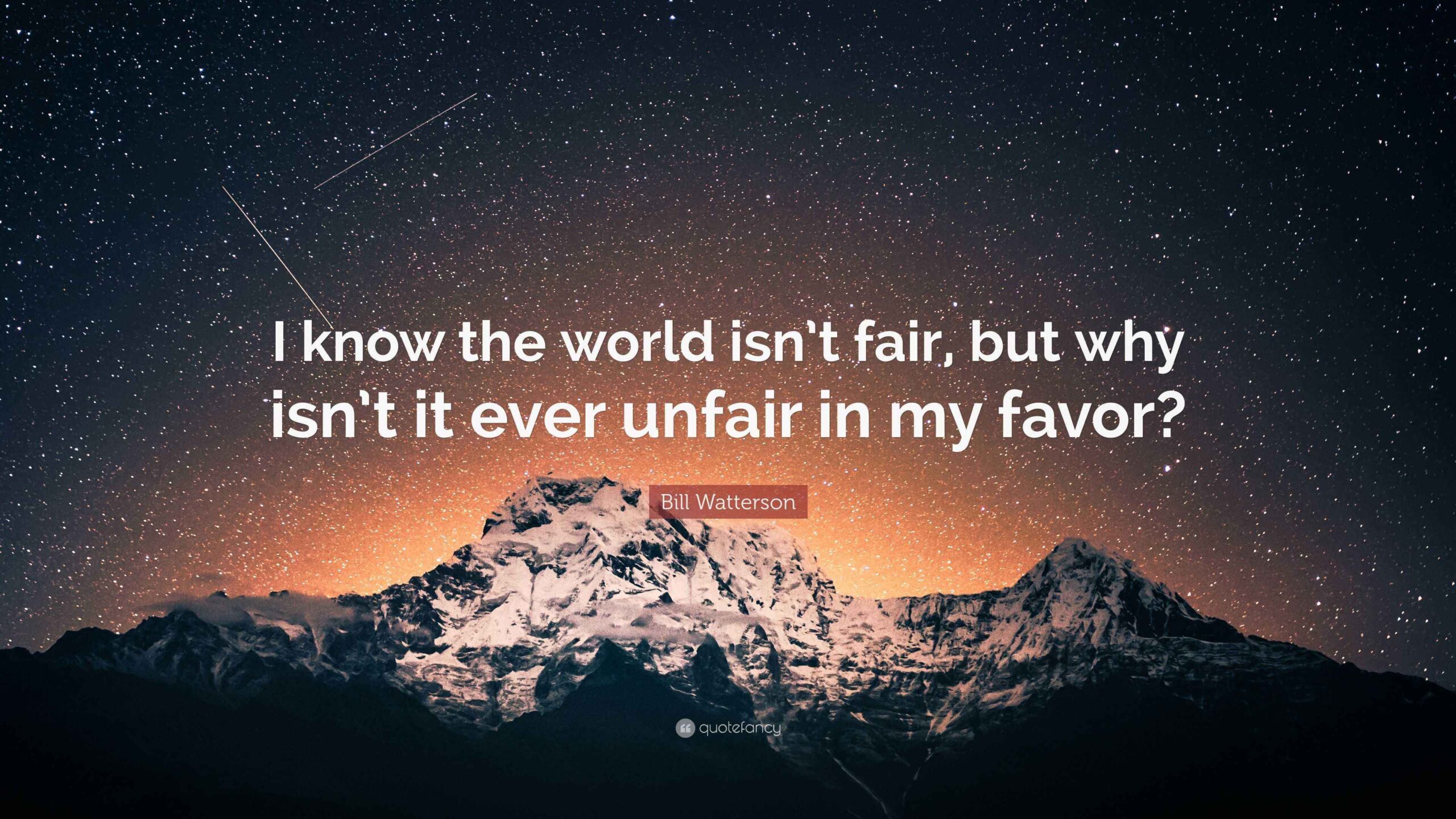
This Isn’t Fair: Navigating Injustice and Seeking Equitable Outcomes
The phrase “this isn’t fair” echoes through playgrounds, boardrooms, and political arenas alike. It’s a primal scream against perceived injustice, a fundamental challenge to the status quo. But what does fairness truly mean, and how do we navigate situations where we feel it’s absent? This article delves into the complexities of fairness, exploring its subjective nature, its impact on individuals and society, and strategies for addressing perceived inequities.
The Subjectivity of Fairness
Fairness, at its core, is a subjective concept. What one person perceives as equitable, another may view as profoundly unjust. This discrepancy arises from differing values, experiences, and perspectives. A child who doesn’t get a desired toy might exclaim, “This isn’t fair!” while their parent, considering the child’s existing collection and budget constraints, sees the situation differently. Similarly, in the workplace, disagreements over promotions or salary increases often stem from conflicting ideas about what constitutes a fair distribution of rewards.
Cultural norms also play a significant role in shaping our understanding of fairness. In some societies, seniority might be the primary determinant of status and compensation, while others prioritize merit and performance. Understanding these cultural nuances is crucial for navigating international relations and cross-cultural interactions. The feeling of “this isn’t fair” can be amplified when these deeply ingrained cultural expectations are violated.
The Impact of Perceived Injustice
The feeling that “this isn’t fair” can have profound psychological and social consequences. At the individual level, it can lead to feelings of resentment, anger, and frustration. Prolonged exposure to perceived injustice can contribute to stress, anxiety, and even depression. When individuals feel that their efforts are not being recognized or that they are being treated unfairly, their motivation and productivity can plummet.
On a broader scale, perceived injustice can fuel social unrest and conflict. History is replete with examples of revolutions and protests sparked by widespread feelings of unfair treatment. From the American Revolution to the Civil Rights Movement, movements for social change often arise from a collective sense that the existing system is inherently unjust. When large segments of the population believe that “this isn’t fair,” the potential for social instability increases.
Identifying and Addressing Inequity
While the feeling of “this isn’t fair” can be deeply personal, it’s important to distinguish between subjective feelings and objective realities. Sometimes, our perception of unfairness is based on incomplete information or biased perspectives. Other times, it reflects genuine systemic inequities that need to be addressed.
Open Communication
One of the first steps in addressing perceived unfairness is to engage in open and honest communication. This involves actively listening to the perspectives of others, seeking clarification, and expressing your own concerns in a respectful manner. In a workplace setting, this might involve having a direct conversation with your manager or HR representative. In a personal relationship, it might involve calmly explaining your feelings to your partner or friend. The goal is to create a space where everyone feels comfortable sharing their thoughts and feelings without fear of judgment or reprisal. [See also: Effective Communication Strategies]
Seeking Objective Data
To determine whether a situation is truly unfair, it’s important to gather objective data and evidence. This might involve researching relevant policies, comparing your situation to those of others in similar circumstances, or consulting with experts in the field. For example, if you believe you are being underpaid compared to your colleagues, you might research industry salary benchmarks or consult with a career counselor. Having concrete data can help you make a more informed assessment of the situation and build a stronger case for change. If you feel “this isn’t fair,” make sure to back your claims with evidence.
Advocating for Change
If, after gathering information and engaging in open communication, you still believe that you are being treated unfairly, you may need to advocate for change. This might involve filing a formal complaint, organizing a collective action, or seeking legal recourse. The specific course of action will depend on the nature of the injustice and the available resources. It’s important to carefully consider the potential consequences of each option and to seek advice from trusted advisors. Remember that advocating for change can be challenging, but it can also be a powerful way to create a more just and equitable society. Sometimes, saying “this isn’t fair” is the first step towards positive change.
The Role of Empathy
Empathy plays a crucial role in fostering fairness and understanding. By putting ourselves in the shoes of others, we can gain a deeper appreciation for their perspectives and experiences. This can help us to identify potential biases and inequities that we might otherwise overlook. Empathy can also motivate us to take action to address injustice and to create a more inclusive and equitable environment for everyone. Understanding why someone else thinks “this isn’t fair” can be transformative. [See also: The Power of Empathy in Leadership]
Systemic Inequities
It’s crucial to acknowledge that many instances of perceived unfairness are rooted in systemic inequities. These are deeply ingrained biases and structures that disadvantage certain groups of people based on factors such as race, gender, sexual orientation, or socioeconomic status. Addressing systemic inequities requires a multi-faceted approach that includes policy changes, educational initiatives, and cultural shifts. We must actively challenge discriminatory practices and promote equal opportunities for all. When individuals repeatedly feel “this isn’t fair,” it’s often a symptom of a larger systemic problem.
The Pursuit of Justice
The pursuit of justice is an ongoing process, not a destination. There will always be disagreements and challenges in determining what constitutes fairness. However, by embracing open communication, seeking objective data, advocating for change, and cultivating empathy, we can create a more just and equitable world for ourselves and future generations. Recognizing that “this isn’t fair” is a powerful catalyst for positive change is essential. Even when things seem unfair, remember that your voice matters. Standing up and saying “this isn’t fair” can inspire others to do the same. The collective pursuit of fairness, even in the face of adversity, is what ultimately drives progress and creates a more just and equitable society for all. When you feel that “this isn’t fair,” remember that you have the power to make a difference.
Ultimately, the feeling of “this isn’t fair” is a call to action. It’s a reminder that we must constantly strive to create a world where everyone has the opportunity to thrive. It requires continuous effort and a willingness to challenge the status quo. Let us all commit to listening to those who feel unheard, advocating for those who are marginalized, and working together to build a more just and equitable future.
Even when it seems like “this isn’t fair” is an insurmountable challenge, remember the power of collective action and the enduring human spirit that strives for justice.

